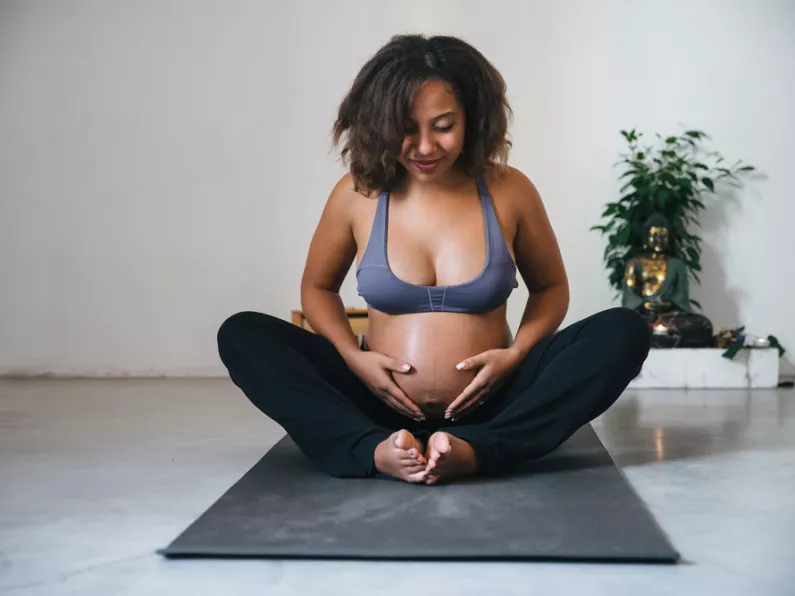Women who work out during pregnancy will likely have a shorter labour, according to a study.
Researchers in Spain found that women who exercise just three times a week during pregnancy have a shorter labour.
In the study, a group of 500 women were divided into two groups; one group was led in sessions of moderate exercise by a professional three times per week, based on an exercise regimen recommended by the American Congress of Obstetricians and Gynecologists (ACOG).
The other group of women had no intervention, just routine education about nutrition and physical activity during prenatal checkups.
And there was a stark difference when it came to the labour suite.
Women who work out during pregnancy likely to have shorter labour
The first stage of labour - the progression to the full opening of the cervix - was an average of 53 minutes shorter for women in the exercise program.
But that's not all.
Labour for the women who exercised was on average 57 minutes shorter than for the women who didn't work out.
The women in the exercise group were also less likely to get an epidural according to the study, published in the May 2018 edition of The European Journal of Obstetrics and Gynecology and Reproductive Biology.
Another difference the researchers noticed was the women in the group who were just given nutrition and exercise advice reported higher weight gain during pregnancy.
Exercise during pregnancy
Pregnant women should get at least 150 minutes of moderate-intensity aerobic activity every week, according to guidelines from the Centers for Disease Control and Prevention (CDC).
moderate-intensity physical activity, such as brisk walking, keeps your heart and lungs healthy during and after pregnancy
Exercising during pregnancy may also help decrease the risk of gestational diabetes, preeclampsia and cesarean delivery, reduce back pain, strengthen heart and blood vessels, and give other benefits, notes the ACOG.
Pregnant women must speak with their obstetrician or other healthcare provider to make sure it's safe for them.
Women with certain types of heart and lung diseases, cervical insufficiency, placenta previa, risk factors for preterm labour, severe anemia and preeclampsia should not exercise, according to the ACOG.
The intensity of a workout depends on your level of physical fitness before becoming pregnant, according to experts.







